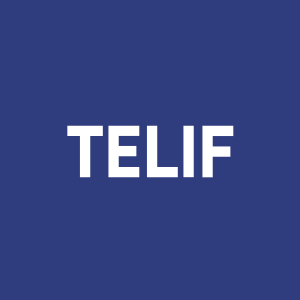Telescope Innovations Announces Scientific Publication on AI-Optimized Production of Battery-Grade Lithium Carbonate
Rhea-AI Summary
Telescope Innovations (CSE: TELI) (OTCQB: TELIF) has published research demonstrating an AI-driven method to optimize battery-grade lithium carbonate production. The study, conducted with Natural Resources Canada, McMaster University, and the University of Toronto, showcases the company's ReCRFT technology, which achieved over 83% lithium carbonate yields from direct lithium extraction eluates using CO2 as a carbonating reagent. The process specifically addresses challenges in processing North American brines, which contain high impurities and typically require multiple polishing steps.
Positive
- AI-driven platform achieved over 83% lithium carbonate yields, outperforming traditional methods
- ReCRFT technology successfully processes high-impurity North American brines
- Carbon-negative process using CO2 as reagent enhances environmental sustainability
Negative
- None.
News Market Reaction
On the day this news was published, TELIF declined 9.38%, reflecting a notable negative market reaction.
Data tracked by StockTitan Argus on the day of publication.
AI guides Telescope's ReCRFT tech to boost efficiency and environmental sustainability of producing battery raw materials
Vancouver, British Columbia--(Newsfile Corp. - October 29, 2024) - Telescope Innovations Corp. (CSE: TELI) (OTCQB: TELIF) ("Telescope Innovations" or the "Company"), a developer of enabling technologies for the global pharmaceutical and chemical industries, is pleased to announce the publication of a collaborative research project in Digital Discovery. The peer-reviewed paper, "Artificial Intelligence-Enabled Optimization of Battery-Grade Lithium Carbonate Production", introduces a cutting-edge AI-driven method to increase the yield of lithium carbonate produced from lithium brine concentrates.1 The work provides a path to using CO2 as a carbonating reagent, reducing the environmental cost of the process.
Research was conducted in collaboration with Natural Resources Canada, McMaster University, and the University of Toronto. ReCRFT™, developed by Telescope Innovations, is a carbon-negative and low-cost technology that produces battery-grade lithium carbonate from direct lithium extraction (DLE) eluates. The present collaborative work introduced an AI-driven automated experimentation platform to rapidly optimize the conversion of lithium chloride to carbonate, using CO2 as the carbonating reagent. (Figure 1).
Figure 1. Simplified depiction of the AI-enabled workflow to optimize lithium carbonate yield from DLE concentrates. Reproduced from Ref. 1 with permission from the Royal Society of Chemistry.1
To view an enhanced version of this graphic, please visit:
https://images.newsfilecorp.com/files/8923/228122_0204e5a834a4da63_001full.jpg
Researchers were particularly interested in North American brine compositions, which contain large amounts of impurities and require multiple polishing steps following DLE, resulting in higher processing costs compared to overseas resources. The AI-driven automation platform developed for this study increased lithium carbonate yields to over
"By integrating our ReCRFT™ technology with AI-driven experimentation, we've not only improved lithium carbonate yields but also enhanced the sustainability of the entire process," said Ryan Jansonius, VP of Chemistry Contract Services at Telescope Innovations. "This breakthrough offers a crucial solution for addressing the challenges of processing North American brines, helping to strengthen onshore supply chains and reduce environmental impact."
The Company further announces that it has granted a total of 807,000 incentive stock options to certain employees, directors and consultants of the Company in accordance with the Company's Equity Incentive Plan.
The options have various vesting schedules at the discretion of the Board of Directors and are exercisable to acquire common shares of the Company at a price of
About Telescope Innovations
Telescope Innovations is a chemical technology company developing scalable manufacturing processes and tools for the pharmaceutical and chemical industry. The Company builds and deploys new enabling technologies including flexible robotic platforms and artificial intelligence software that improves experimental throughput, efficiency, and data quality. Our aim is to bring modern chemical technology solutions to meet the most serious challenges in health and sustainability.
On behalf of the Board,
Telescope Innovations Corp.
Jeffrey Sherman, Chief Operating Officer
E: jeff@telescopeinn.com
Forward-Looking Information
Forward-looking information is based on a number of opinions, assumptions and estimates that, while considered reasonable by the Company as of the date of this news release, are subject to known and unknown risks, uncertainties, assumptions and other factors that may cause the actual results, level of activity, performance or achievements to be materially different from those expressed or implied by such forward-looking information.
Examples of such assumptions, risks and uncertainties include, without limitation, assumptions, risks and uncertainties associated with the global COVID-19 pandemic; general economic conditions; adverse industry events; the Company's ability to access sufficient capital from internal and external sources, and/or inability to access sufficient capital on favorable terms; the ability of the Company to implement its business strategies; competition; and other assumptions, risks and uncertainties.
Forward-looking statements in this document include expectations surrounding the ability of Telescope's work to contribute to a more sustainable, on-shore supply chain for battery raw materials, and all other statements that are not statements of historical fact.
The forward-looking statements contained in this news release are made as of the date of this news release, and the Company expressly disclaims any obligation to update or alter statements containing any forward-looking information, or the factors or assumptions underlying them, whether as a result of new information, future events or otherwise, except as required by law.
The CSE has neither approved nor disapproved the contents of this news release. Neither the CSE nor its Market Regulator (as that term is defined in the policies of the CSE) accepts responsibility for the adequacy or accuracy of this release.
1 Mousavi Masouleh et al. Artificial Intelligence-Enabled Optimization of Battery-Grade Lithium Carbonate Production. Digital Discovery 2024, Advance Article. https://doi.org/10.1039/D4DD00159A
To view the source version of this press release, please visit https://www.newsfilecorp.com/release/228122








